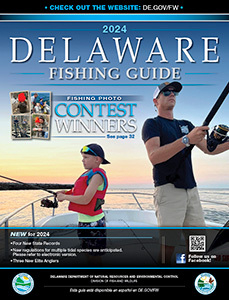Boating Safety
Personal Flotation Devices (PFDS)
A PFD must be worn by a child 12 years old or under while aboard a vessel which is underway. All PWC riders and anyone being towed must wear a PFD. Current regulations require all vessels to carry a wearable PFD for each person onboard. A throwable PFD is also required on vessels, excluding those less than 16'. The Office of Boating Safety & Education suggests all vessels carry a throwable with a line attached for casting, and that you wear your life jacket as it is meant to be worn, and at all times.
Alcohol
Just as drinking and driving don’t mix, drinking and boating are a dangerous combination. Sun, glare from the water, constant boat motion and boat vibration all contribute to boater fatigue. Add alcohol consumption and those problems are compounded. Additionally, alcohol affects balance and muscle coordination, causes tunnel vision and slows reaction time. It also affects reasoning and increases the tendency to take risks. Operating a boat under the influence of alcohol or drugs is against the law and could result in fines up to $1,000 for first offense and/or up to 60 days in jail. A blood alcohol content of 0.08 or greater constitutes being under the influence.
Registration, Numbering and Marking of Undocumented Vessels
Vessels equipped with any type of motor must be registered in Delaware if principally used (a period of more than 60 days) in this State. The registration card or valid temporary registration card must be on board when the boat is in use. For further information on boating registration call The Office of Boat Registration at: (302) 739-9916 OR visit https://de.gov/boatreg
Safe Boating Speed
The speed of all vessels on Delaware waters must be slow enough to prevent any wake of appreciable height when the vessels are within 100 feet of: “Slow-No-Wake” speed areas, docks, launching ramps, marked swimming areas, swimmers, anchored, moored, or drifting vessels.
Take a Boating Education Course
Those persons born on or after January 1, 1978 must take an approved boating education course before operating a motorized vessel, to include personal watercraft (PWC). Contact the Office of Boating Safety & Education for more information on taking a classroom course at: (302) 739-9915 OR find their online course options by visiting http://de.gov/boatsafety
Delaware Fish & Wildlife Natural Resources Police are responsible for enforcing all of the safe boating laws in Delaware. To report violations and accidents call their 24 hour dispatch line at: (302) 739-4580.
Equipment |
Class A (less than 16 feet) |
Class 1 (16 feet to less than 26 feet) |
1. Annual registration fee |
$20.00 |
$40.00 |
2. Decals & boat number |
Display properly on bow |
Display properly on bow |
3. Personal flotation Device (PFD)*Must be serviceable (see below) |
One approved wearable PFD |
One approved wearable PFD for each person on board plus one throwable PFD. |
4. Whistle |
One hand, mouth or power |
One hand, mouth or power operated, and audible at least one half (1/2) mile |
5. Fire Extinguisher |
One type B-1, if carrying passengers for hire, or if boat construction will permit entrapment of flammable vapors. |
One type B-1, if carrying passengers for hire, or if boat construction will permit entrapment of flammable vapors. |
6. Ventilation At least two ventilator ducts fitted with cowls or equivalent, |
||
7. Atlantic Ocean, Delaware Bay and Delaware River South of Artificial Island—U.S. Coast Guard regulations require all vessels to carry day and night distress signaling devices. |
||

